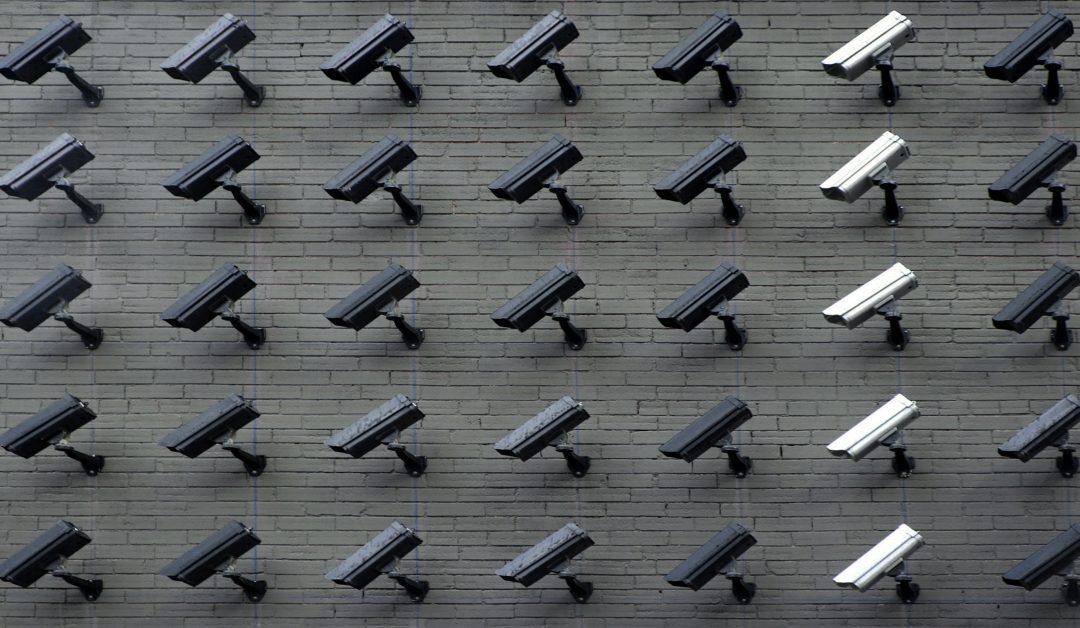What would we be willing to give up to "get back to normal"?
Would you trade your privacy for a return to normalcy?

What would we be willing to give up to “get back to normal”? Normally, we’re the kind of people who love a hypothetical debate over a good dinner with friends. Suddenly, questions about trade-offs between our civil liberties and what it would take to end this pandemic are all too real.
“Test and trace”
What if you could get back out into the world and businesses could re-open? Some policy experts argue that “contact tracing” is a promising avenue for getting control of the pandemic. With extensive testing, those who are identified as having COVID-19 are isolated and others who have been in contact with them recently are alerted and expected (or forced) to self-quarantine. It’s a strategy that has been employed successfully by South Korea, Singapore, and others to get their countries back up and running. If we want to model ourselves after these countries, however, we’ll have to pay a price: our privacy. Is that price too high?
This kind of surveillance could also have unintended consequences:
As the government seeks greater visibility into the public’s movements, many Americans will seek to evade public monitoring for reasons wholly unrelated to COVID-19. These tools can backfire, driving people into the shadows and chilling the public’s willingness to seek medical treatment. And just as importantly, draconian surveillance tools can foster an adversarial dynamic between the public and health authorities, undermining public support for, and compliance with, social distancing mandates. (Albert Fox Cahn and Alyssa Domino in Fast Company)
Data privacy
If you find it unsettling that Facebook uses your data in order to sell you more yoga pants, this kind of surveillance raises privacy concerns to a much higher level. Businesses and government may be tempted to use the data collected to help contain COVID-19 for purposes beyond the pandemic. Crisis situations, like 9/11, can (and did) lead to surveillance overreaches.
And in 2001, none of us had smartphones, so the potential for data collection has grown immensely in the interim. In Singapore, “test and trace” included government review of credit card receipts and encouraging individuals to download an app that records the “exchange of Bluetooth signals” on phones within two meters of one another.
The Electronic Frontier Foundation, a watchdog for civil liberties in the digital space, warns that “there is historical precedent for life-saving programs such as these, and their intrusions on digital liberties, to outlive their urgency.” Let’s say you’re willing to have the government review your smartphone data in order to contain COVID-19. If you thought it would save the life of someone you love, giving up your privacy (and everyone else’s) might seem like a reasonable price to pay. But do you trust the surveillance to stop when the crisis has been contained?
Weighing the costs
The high and immediate stakes of a fast-moving pandemic mean we don’t have the luxury of debating these costs at a pace and with the deliberation they deserve. Reminders that “we are all in this together” are encouraging, but they don’t change the fact that we are each affected by this crisis in different ways. As a result, we’re likely to assign different values to the trade-offs we’re being asked to consider.
What if you could price your own data based on your own “privacy sensibilities”? Some have argued that “personalized data management” would give ownership rights to individuals while empowering them (via markets) to assign value to their personal data. Like markets in other things, however, there is no guarantee these markets would be immune to government intervention during times of national emergencies.
Let us know what you think
These are tough questions, and we’re committed to helping you sort through them. What trade-offs are you facing today? How are you thinking about your digital privacy? Email us at jennifer@civilsquared.org and tell us about it. We’ll help you dig in and find the content and confidence to weigh these challenging questions.
5 more links worth your time
- [Online Event] Civil Squared Live: A Pop-Up Conversation on “How Will a Divided Country Emerge from COVID-19?” – Join us online on Wednesday, April 15th at 7:30 pm (EDT) for a facilitated conversation about the current crisis and political polarization. We’ll discuss two short articles from The Atlantic and Real Clear Policy.
- Tectonix GEO Visualization – This short video demonstrates how one company is using GPS data to monitor how well social distancing guidelines are being followed and how individuals who gather (on a beach in Florida, for instance) spread out over time.
- Where America Didn’t Stay Home Even as the Virus Spread, The New York Times – An analysis of cellphone location data considers the travel habits of Americans between late February and late March. What does the data tell us and what can’t it tell us?
- Countries are using apps and data networks to keep tabs on the pandemic, The Economist – This briefing outlines three ways governments are using technology to track the pandemic…and their citizens.
- The 9/11 Playbook for Protecting Privacy, Politico – The Privacy and Civil Liberties Oversight Board, created in the wake of 9/11, is charged with safeguarding the balance between crisis response and individual rights. Two members of the Board consider what they’ve learned and how it can be applied to COVID-19 responses.
p.s. If you’ve got a political, ideological, or philosophical issue you’ve been considering, email me at jennifer@civilsquared.org and I’ll work with my team to put together a list of articles, issues, and interesting points of view to share with you and others.